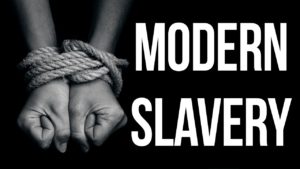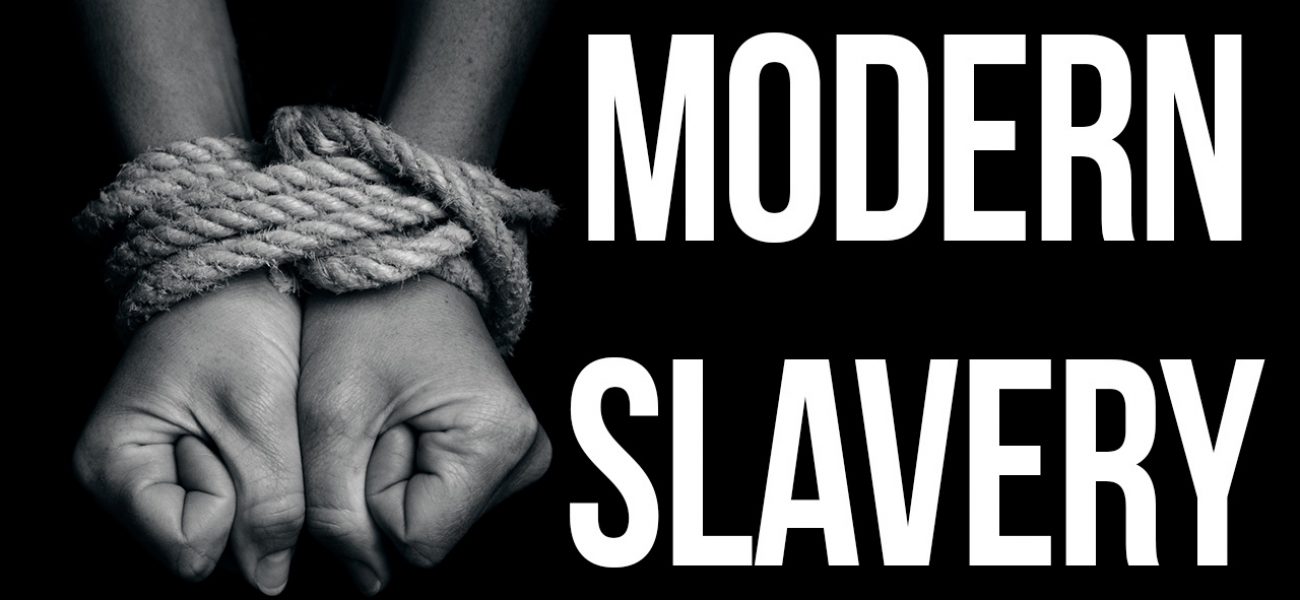 A recent undercover footage from Cable News Network (CNN) showing slave auctions of Sub-Saharan Africans in Libya has provoked national and international outrage on the rights and dignity of migrants and refugees living in Libya. According to the footage, many migrants from sub-Saharan Africa (including Nigeria) are sold to serve as labourers in the field with little or no food and water with others killed in the process.
A recent undercover footage from Cable News Network (CNN) showing slave auctions of Sub-Saharan Africans in Libya has provoked national and international outrage on the rights and dignity of migrants and refugees living in Libya. According to the footage, many migrants from sub-Saharan Africa (including Nigeria) are sold to serve as labourers in the field with little or no food and water with others killed in the process.
While the situation in Libya is shocking, the Global Slavery Index[1] puts the estimate of human beings in the world living in slavery in 2016 at 40 million. That is, more than triple the total number of Africans who were kidnapped and shipped to the West as slaves between 1525 and 1866 and ten times the number of slaves that were in the United States in 1860[2]. This means that slavery still remains a prevalent problem. Article 8 of the International Covenant on Civil and Political Rights 1966 prohibits slavery in all its forms. Mauritania was the last country to legally abolish slavery 37 years ago.
In Nigeria, the recent incident that happened in November, 2017 when international and national media outlets reported that 26 Nigerian girls died in the Mediterranean sea accentuate the story in Libya and bring to the fore the huge migration and trafficking in persons crisis in Africa. It has been reported that more than 150,000 migrants and refugees cross into Europe from Libya in the hope of making a better life and that not less than 3,000 of such people die trying to cross the Mediterranean Sea each year. These incidents indicate that African countries must strengthen their governance structures to enable citizens meet their primary needs; and make present destination countries less attractive. The Federal Government has repatriated more than 200 persons alone this year from Libya.
In addition to this, the crisis in Libya is fuelled by the absence of rule of law. There is also a subsisting agreement between the Italian government and Libya to intercept vessels smuggling people into Europe which often times seen such persons being sent to detention centres in Libya where they are preyed upon by criminal elements who rob, rape and murder some of them while others are sold into slavery. Ironically, Libya is a party to the United Nations Supplementary Convention on the Abolition of Slavery, the Slave Trade and Institutions and Practices Similar to Slavery, 1956. It has also ratified the African Charter on Human and Peoples Rights 1986, which expressly prohibits slavery[3].
In the Nigerian House of Representatives, the Speaker, Rt. Hon. Yakubu Dogara called for an “exercise of political will and muscle to execute the laws and policies already in place” and called for Parliamentarians to use their legislative tools of oversight to ensure that all agencies are empowered to fight the scourge of slavery and trafficking. This could be done for instance, by strengthening the National Agency for the Prohibition of Trafficking in Persons (NAPTIP) whose functions include investigating all cases of trafficking and providing tighter border control. Section 5 of the NAPTIP Act for example gives the agency jurisdiction over matters pertaining to “forced labour, child labour, forced prostitution, exploitative labour, slavery and slavery like activities, bonded labour, removal of organs, illegal smuggling of migrants, sale and purchase of persons.”
The Federal Government could also push for more information and co-operation between Nigeria and popular transit countries to intercept smugglers and their victims before they leave Nigeria.
Lastly, while all governments must fight against slavery, trafficking and inhuman degrading treatment of persons within its territory, it is imperative that the Nigerian government take seriously the prosecution of all persons who are engaged in human trafficking under the Trafficking in Persons (Prohibition) Enforcement and Administration Act, 2015 and create economic opportunities that benefit the vast majority of people. Effective implementation of the law in this regard would be the most useful deterrent.
[1] https://www.globalslaveryindex.org/index/ [2] https://www.bustle.com/p/libya-is-selling-refugees-as-slaves-the-atrocity-is-more-widespread-than-you-think-5553563 [3] Article 5, African Charter on Human and Peoples Rights, 1986

